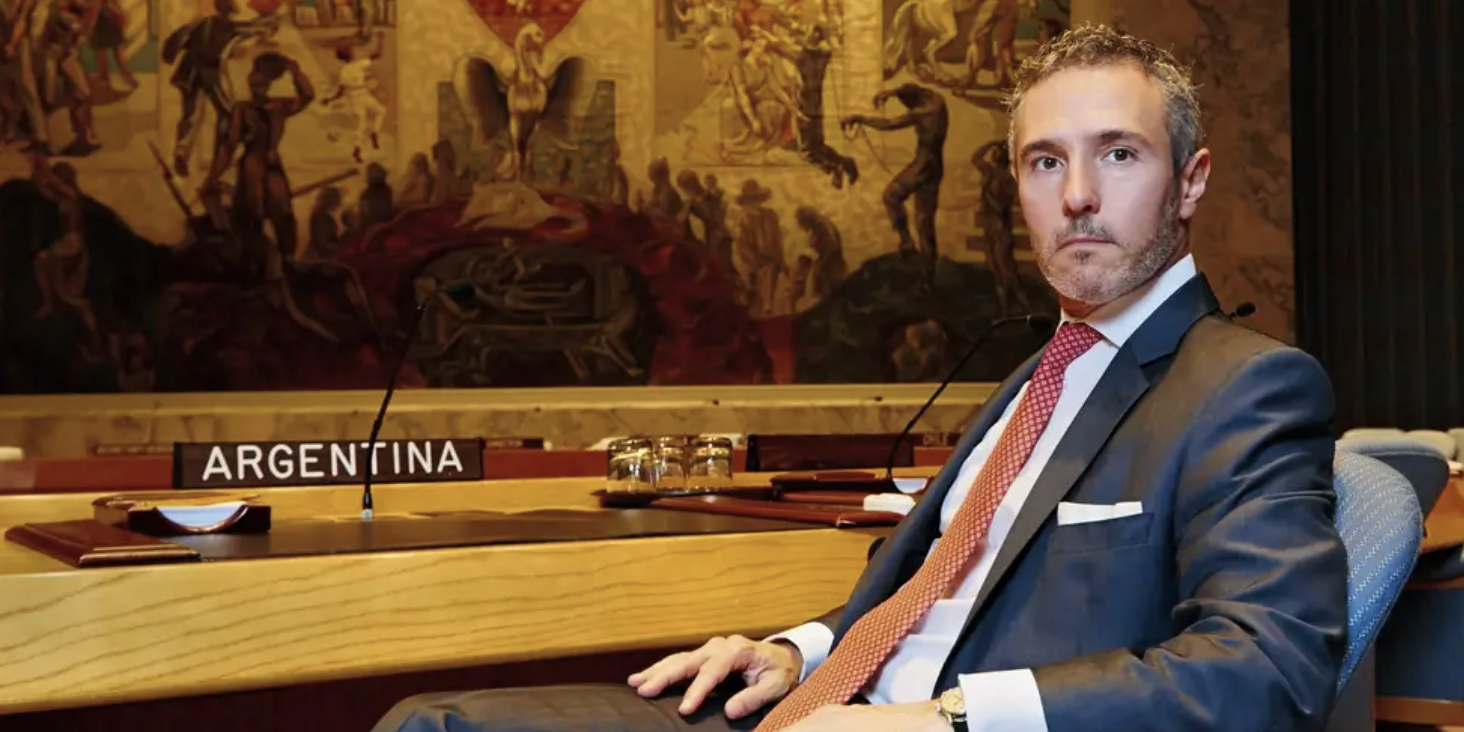1982 and Beyond: Ambassador Oyarzabal’s Seminar on the Falkland Dispute
By Shrika Gadepalli
The Honorable Mario Oyarzabal, Ambassador of the Argentine Republic to the Netherlands, glorified the Historical Security Council (HSC) – Year 1982 with his presence. The Ambassador shared profound insights into the Falkland Islands dispute between Argentina and the United Kingdom in his address.
Located approximately 460 kilometres off Argentina’s mainland coast and situated within its continental shelf extending roughly 250 nautical miles, the Falkland Islands originally came under the jurisdiction of Spain and Portugal following the European colonial arrangements established after the discovery of the Americas in 1492. These arrangements allocated territories of defunct states among the colonial powers of the time.
The sovereignty dispute, which began in 1833 with the British Army’s occupation of the Islands and subsequent expulsion of Argentine authorities, has since evolved into a prolonged and contentious issue. Argentina’s sovereign claims, supported by efforts such as an attempted Memorandum of Understanding, were systematically disregarded, primarily due to the presence of a British-implanted population rather than an indigenous or autonomous one. Subsequent proposals to establish joint governance or condominiums consistently failed.
This unresolved tension culminated in the outbreak of armed conflict in 1982, the focal year for the HSC’s deliberations. The United Kingdom’s decision to expel Argentine forces from the Islands was met with strong resistance. Reflecting on the situation, Ambassador Oyarzabal poignantly remarked, “You cannot invade what is yours.” The conflict prompted immediate intervention by the United Nations, leading to the passage of two Security Council resolutions that called for the prompt withdrawal of both parties and a ceasefire plea from the Non-Allied Movement and several South American nations.
As the conflict de-escalated, the matter shifted from the Security Council’s jurisdiction to that of the General Assembly. The resolutions emphasized the continuation of bilateral negotiations, underscoring the enduring nature of the sovereignty dispute. The United Kingdom’s position, notably, pivots around the principle of self-determination for the inhabitants of the Falkland Islands—a stance that conveniently sidesteps the broader question of sovereignty.
Ambassador Oyarzabal concluded his seminar with a dynamic question-and-answer session, where delegates of the HSC critically engaged with the topics presented. Their inquiries, which deeply pleased the Ambassador, spanned issues such as specific clauses in Resolution 31/79, the colonial influences shaping the UK’s stance, the origins of the implanted population, and the broader implications of governmental conflicts. The session concluded with the Ambassador reiterating Argentina’s persistent desire for the rightful return of the Islands while lamenting the United Kingdom’s intransigence in addressing the dispute through meaningful negotiations.
(Featured Image Source: United Nations Security Council — 2014. Mario Oyarzabal, mariooyarzabal.info/. Accessed 30 Jan. 2025)








